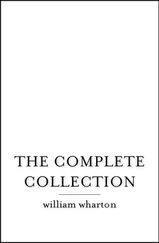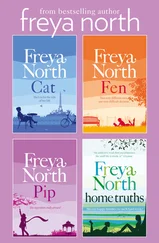A Reward of $2250. will be given for my negroes if taken out of the State of Maryland and lodged in Cambridge or Baltimore Jail, so that I can get them or a fair proportion for any part of them. And including Joe Viney's reward $2650.00.
At the same time eight other negroes belonging to a neighbor of mine ran off, for which a reward of $1400.00 has been offered for them.
If you should want any information, witnesses to prove or indentify the negroes, write immediately on to me. Or if you should need any information with regard to proving the negroes, before I could reach Philadelphia, you can call on Mr. Burroughs at Martin & Smith's store, Market Street, No 308. Phila and he can refer you to a gentleman who knows the negroes.
Yours &c SAML. PATTISON.
This letter was in answer to one written in Philadelphia and signed, "L.W. Thompson." It is not improbable that Mr. Pattison's loss had produced such a high state of mental excitement that he was hardly in a condition for cool reflection, or he would have weighed the matter a little more carefully before exposing himself to the U.G.R.R. agents. But the letter possesses two commendable features, nevertheless. It was tolerably well written and prompt.
Here is a wonderful exhibition of affection for his contented and happy negroes. Whether Mr. Pattison suspended on suddenly learning that he was minus fifteen head, the writer cannot say. But that there was a great slave hunt in every direction there is no room to doubt. Though much more might be said about the parties concerned, it must suffice to add that they came to the Vigilance Committee in a very sad plight — in tattered garments, hungry, sick, and penniless; but they were kindly clothed, fed, doctored, and sent on their way rejoicing.
Daniel Stanly, Nat Amby, John Scott, Hannah Peters, Henrietta Dobson, Elizabeth Amby, Josiah Stanly, Caroline Stanly, Daniel Stanly, jr., John Stanly and Miller Stanly (arrival from Cambridge.) Daniel is about 35, well-made and wide-awake. Fortunately, in emancipating himself, he also, through great perseverance, secured the freedom of his wife and six children; one child he was compelled to leave behind. Daniel belonged to Robert Calender, a farmer, and, "except when in a passion," said to be "pretty clever." However, considering as a father, that it was his "duty to do all he could" for his children, and that all work and no play makes Jack a dull boy, Daniel felt bound to seek refuge in Canada. His wife and children were owned by "Samuel Count, an old, bald-headed, bad man," who "had of late years been selling and buying slaves as a business," though he stood high and was a "big bug in Cambridge." The children were truly likely-looking.
Nat is no ordinary man. Like a certain other Nat known to history, his honest and independent bearing in every respect was that of a natural hero. He was full black, and about six feet high; of powerful physical proportions, and of more than ordinary intellectual capacities. With the strongest desire to make the Port of Canada safely, he had resolved to be "carried back," if attacked by the slave hunters, "only as a dead man." He was held to service by John Muir, a wealthy farmer, and the owner of 40 or 50 slaves. "Muir would drink and was generally devilish." Two of Nat's sisters and one of his brothers had been "sold away to Georgia by him." Therefore, admonished by threats and fears of having to pass through the same fiery furnace, Nat was led to consider the U.G.R.R. scheme. It was through the marriage of Nat's mistress to his present owner that he came into Muir's hands. "Up to the time of her death," he had been encouraged to "hope" that he would be "free;" indeed, he was assured by her "dying testimony that the slaves were not to be sold." But regardless of the promises and will of his departed wife, Muir soon extinguished all hopes of freedom from that quarter. But not believing that God had put one man here to "be the servant of another — to work," and get none of the benefit of his labor, Nat armed himself with a good pistol and a big knife, and taking his wife with him, bade adieu forever to bondage. Observing that Lizzie (Nat's wife) looked pretty decided and resolute, a member of the committee remarked, "Would your wife fight for freedom?" "I have heard her say she would wade through blood and tears for her freedom," said Nat, in the most serious mood.
The following advertisement from The Cambridge Democrat of Nov. 4, speaks for itself —
 $300 REWARD. — Ran away from the subscriber, on Saturday night last, 17th inst., my negro woman Lizzie, about 28 years old. She is medium sized, dark complexion, good-looking, with rather a down look. When spoken to, replies quickly. She was well dressed, wearing a red and green blanket shawl, and carried with her a variety of clothing. She ran off in company with her husband, Nat Amby (belonging to John Muir, Esq.), who is about 6 feet in height, with slight impediment in his speech, dark chestnut color, and a large scar on the side of his neck.
$300 REWARD. — Ran away from the subscriber, on Saturday night last, 17th inst., my negro woman Lizzie, about 28 years old. She is medium sized, dark complexion, good-looking, with rather a down look. When spoken to, replies quickly. She was well dressed, wearing a red and green blanket shawl, and carried with her a variety of clothing. She ran off in company with her husband, Nat Amby (belonging to John Muir, Esq.), who is about 6 feet in height, with slight impediment in his speech, dark chestnut color, and a large scar on the side of his neck.
I will give the above reward if taken in this County, or one-half of what she sells for if taken out of the County or State. In either ease to be lodged in Cambridge Jail.
Cambridge, Oct. 21, 1857.
ALEXANDER H. BAYLY.
P.S. — For the apprehension of the above-named negro man Nat, and delivery in Cambridge Jail, I will give $500 reward.
JOHN MUIR.
Now since Nat's master has been introduced in the above order, it seems but appropriate that Nat should be heard too; consequently the following letter is inserted for what it is worth:
Auburn, June 10th, 1858.
Mr. William Still: — Sir, will you be so Kind as to write a letter to affey White in straw berry alley in Baltimore city on the point. Say to her at nat Ambey that I wish to Know from her the Last Letar that Joseph Ambie and Henry Ambie two Brothers and Ann Warfield a couisin of them two boys I state above. I would like to hear from my mother sichy Ambie you will Please write to my mother and tell her that I am well and doing well and state to her that I perform my Relissius dutys and I would like to hear from her and want to know if she is performing her Relissius dutys yet and send me word from all her children I left behind say to affey White that I wish her to write me a Letter in Hast my wife is well and doing well and my nephew is doing well. Please tell affey White when she writes to me to Let me know where Joseph and Henry Ambie is.
Mr. Still Please Look on your Book and you will find my name on your Book. They was eleven of us children and all when we came through and I feal interrested about my Brothers. I have never heard from them since I Left home you will Please Be Kind annough to attend to this Letter. When you send the answer to this Letter you will Please send it to P.R. Freeman Auburn City Cayuga County New York.
Yours Truly
NAT AMBIE.
William is 25, complexion brown, intellect naturally good, with no favorable notions of the peculiar institution. He was armed with a formidable dirk-knife, and declared he would use it if attacked, rather than be dragged back to bondage.
Hannah is a hearty-looking young woman of 23 or 24, with a countenance that indicated that liberty was what she wanted and was contending for, and that she could not willingly submit to the yoke. Though she came with the Cambridge party, she did not come from Cambridge, but from Marshall Hope, Caroline County, where she had been owned by Charles Peters, a man who had distinguished himself by getting "drunk, scratching and fighting, etc.," not unfrequently in his own family even. She had no parents that she knew of. Left because they used her "so bad, beat and knocked" her about.
Читать дальше

 $300 REWARD. — Ran away from the subscriber, on Saturday night last, 17th inst., my negro woman Lizzie, about 28 years old. She is medium sized, dark complexion, good-looking, with rather a down look. When spoken to, replies quickly. She was well dressed, wearing a red and green blanket shawl, and carried with her a variety of clothing. She ran off in company with her husband, Nat Amby (belonging to John Muir, Esq.), who is about 6 feet in height, with slight impediment in his speech, dark chestnut color, and a large scar on the side of his neck.
$300 REWARD. — Ran away from the subscriber, on Saturday night last, 17th inst., my negro woman Lizzie, about 28 years old. She is medium sized, dark complexion, good-looking, with rather a down look. When spoken to, replies quickly. She was well dressed, wearing a red and green blanket shawl, and carried with her a variety of clothing. She ran off in company with her husband, Nat Amby (belonging to John Muir, Esq.), who is about 6 feet in height, with slight impediment in his speech, dark chestnut color, and a large scar on the side of his neck.










